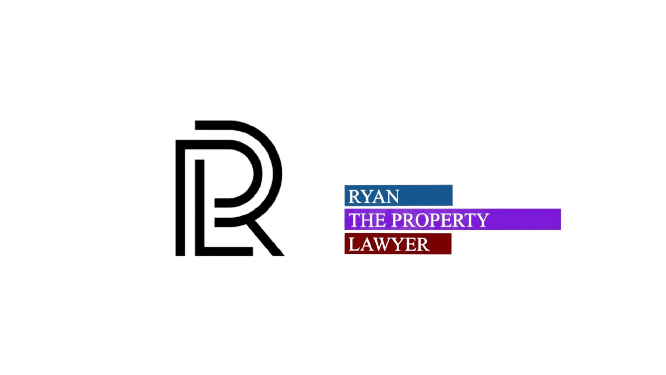Introduction
How to Settle Property Line Disputes is not uncommon for neighbors to have heated disagreements about property lines. Property line disputes, encroachment cases, and other cases involving competing claims to land sometimes end up in court. In this post, I will give real estate attorneys with a detailed guidance on how to handle boundary disputes for their clients in a way that is fair and agreeable to all parties involved.
Recognizing Land-Use Conflicts
Reasons Why People Fight Over Borders
Disputes over boundaries can develop for several reasons, including:
- Having legal papers with unclear or incorrect property descriptions.
- There are no obvious land borders or signs.
- Disputes arising from differing interpretations of the land’s past or present use.
- Natural causes, such as erosion or soil movement, can cause property borders to alter.
- Misreading of survey maps or boundary markers.
Cases of Controversial Boundaries
Disputes over boundaries can take many shapes, including:
- When a building or other physical feature of a property expands onto adjoining land illegally, this is known as an encroachment.
- Disputes involving the use of a shared driveway or access road are examples of easement issues.
- When someone claims ownership of a plot of land on the basis of adverse occupancy, they have been in continuous and exclusive possession for longer than the required time period set by law.
- Disagreements over a property’s border line might arise from different survey findings or different legal definitions.
How to Handle a Dispute Over a Property Line
First, Check All Related Files
Beginning with property deeds, surveys, and historical records, real estate attorneys should examine all pertinent papers. These records are essential for understanding the land’s borders, easements, and any prior agreements or conflicts. By reviewing these records, attorneys can better advise their clients and evaluate the merits of their cases.
Second, you must carry out a boundary survey.
While trying to settle a border dispute, a boundary survey is essential. An expert boundary survey performed by a registered surveyor may assist pinpoint the precise position of property borders. In order to pinpoint the exact borders, the surveyor will look at physical characteristics, legal descriptions, and preexisting markers. The survey data might be used as supporting evidence during mediation.
Step 3: Have a Conversation with the Other Side
Resolving border conflicts requires open and honest dialogue. Attorneys specializing in real estate transactions should act as facilitators of honest and fruitful communication between the opposing party and their counsel. Negotiation and other forms of alternative conflict resolution should be considered after carefully considering their issues and gaining an understanding of their point of view.
Fourth, try mediation or another kind of ADR.
Reaching an agreement that satisfies both parties can be difficult, but mediation and other forms of alternative dispute resolution (ADR) including arbitration and settlement conferences can help. A mediator is an impartial third party who helps guide negotiations between disputing parties. Alternative dispute resolution (ADR) provides for more adaptable and innovative problem-solving, which is good for maintaining relationships.
Fifth, when everything else fails, go to court.
Litigation is an option if attempts at mediation and arbitration fail. Attorneys specializing in real estate should be comfortable appearing in court on behalf of their clients and arguing their cases in light of the relevant facts, legal arguments, and governing statutes. Although litigation is sometimes expensive and time-consuming, it is the only official means by which a disagreement can be settled and a legally binding judgement made.
Strategy and Legal Considerations
Allegations of Unlawful Possession
Adverse possession claims are possible in cases of border disputes. Legally, a person can acquire ownership of another’s property by adverse possession if they have been in open, continuous, and exclusive possession of it for a certain amount of time. In order to determine whether or not their client has a valid adverse possession claim, real estate attorneys need to examine a number of factors. Legal counsel has a duty to investigate claims of adverse possession in order to defend their client’s property rights.
The Solution to Title Problems
Land title problems, such as discrepancies in property descriptions or hidden easements, may surface during a boundary dispute. Real estate attorneys should investigate the property’s title for any problems that might delay or complicate the case. In order to resolve title difficulties and establish proper ownership and limits, it may be necessary to file quiet title lawsuits or seek declaratory judgements.
Testimony from an Expert Witness
Surveyors, appraisers, and experts in land usage are all good options for expert witnesses in border disputes. Attorneys that specialize in real estate may want to retain expert witnesses who may lend their technical skills to support their client’s case in court. Testifying in court as an expert witness allows you to have a better understanding of complicated survey data, historical records, and the worth of the contested land.
Examining the Pros and Cons
When advising clients on whether or not to pursue litigation, real estate attorneys should help them do a cost-benefit analysis. The legal process often involves high costs, long delays, and unknown outcomes. Lawyers should help their clients assess the potential costs, risks, and benefits associated with different strategies, considering factors such as legal fees, expert witness fees, potential damages, and the likelihood of success.
Conclusion
Real estate attorneys are needed to help clients through the legal complexities and emotional intensity of boundary disputes. Whether via negotiation, mediation, or litigation, real estate attorneys can successfully resolve border disputes by following the methods provided in this article. Achieving a just and satisfying result for their clients requires them to make use of their legal expertise, do extensive research, consult specialists when appropriate, and use strategic tactics. Always keep in mind that the end purpose of any boundary dispute resolution is to clarify property lines, secure ownership rights, and keep the peace in the neighborhood. Lawyers that specialize in real estate law play a pivotal role in helping their clients resolve real estate disputes by protecting their rights and pursuing outcomes that are in their clients’ best interests.






